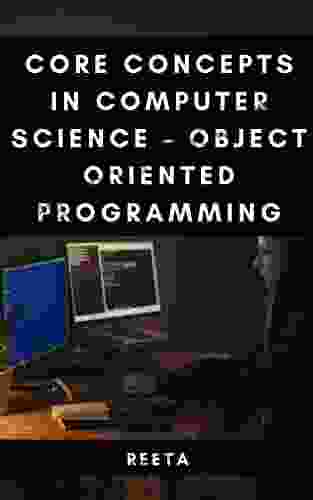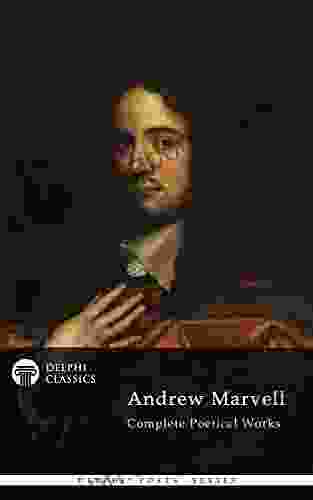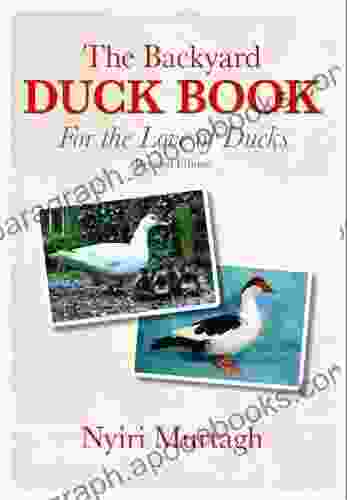Dive into the Core Concepts of Object-Oriented Programming: A Comprehensive Guide for Beginners

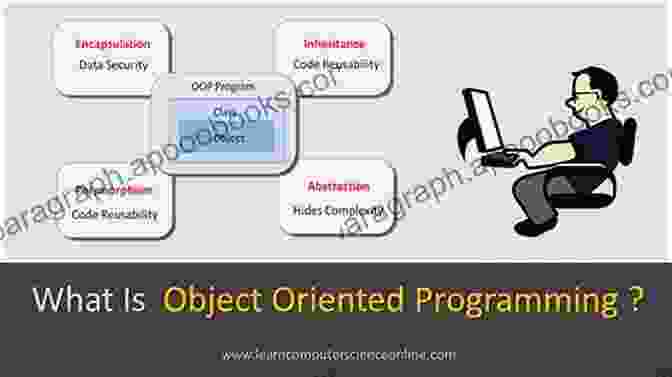
Object-oriented programming (OOP) is a powerful programming paradigm that has revolutionized the way we develop software. It allows us to create modular, maintainable, and extensible code that can be easily scaled to meet the demands of complex projects. In this article, we will explore the core concepts of OOP, providing a comprehensive guide for beginners to understand this fundamental aspect of computer science.
4 out of 5
| Language | : | English |
| File size | : | 338 KB |
| Text-to-Speech | : | Enabled |
| Enhanced typesetting | : | Enabled |
| Print length | : | 19 pages |
| Lending | : | Enabled |
| Screen Reader | : | Supported |
What is Object-Oriented Programming?
OOP is a methodology for organizing and designing code based on the concepts of objects and classes. An object represents a real-world entity with its own unique state and behavior, while a class defines the blueprint or template for creating objects. This approach allows us to model the real world in our software, making it more intuitive and easier to understand.
Key Concepts of OOP
Encapsulation
Encapsulation refers to the bundling of data and methods together into a single unit, known as an object. It allows us to hide the implementation details of an object, making it more secure and maintainable. By controlling access to an object's properties and methods, we can enforce data integrity and prevent unauthorized changes.
Abstraction
Abstraction involves creating classes and defining only the essential details that are necessary for interaction. It allows us to focus on the high-level functionality of our code, hiding the complex implementation details from the user. This concept enables us to create reusable and interchangeable modules that can be easily integrated into different parts of our software.
Inheritance
Inheritance allows us to create new classes that inherit the properties and methods of existing classes. This concept promotes code reuse and reduces duplication, making it easier to maintain and extend our software. By creating a hierarchy of classes, we can organize our code more effectively and handle complex relationships between objects.
Polymorphism
Polymorphism refers to the ability of objects to respond differently to the same message, depending on their class. This concept allows us to write generic code that can handle objects of different types without requiring explicit type checking. Polymorphism promotes code flexibility and makes our software more extensible.
Benefits of OOP
OOP offers numerous advantages over traditional programming paradigms:
* Improved code organization: OOP helps us organize our code into logical units, making it easier to understand, maintain, and debug. * Encapsulation and data hiding: By encapsulating data and methods within objects, OOP protects the integrity of our code and prevents unauthorized access to sensitive information. * Code reusability: Inheritance allows us to reuse code across multiple classes, reducing duplication and making it easier to maintain multiple versions of our software. * Extensibility: OOP makes it easy to extend our software by creating new classes that inherit and extend the functionality of existing classes. * Enhanced flexibility: Polymorphism allows us to create code that can handle objects of different types, making our software more flexible and adaptable to changing requirements.
Applications of OOP
OOP is widely used in a variety of software development domains, including:
* Web development: OOP frameworks such as Django and Ruby on Rails provide a structured approach for building complex web applications. * Mobile development: OOP is used in popular mobile operating systems such as iOS and Android to develop user-friendly and interactive applications. * Game development: OOP is essential for creating engaging and complex video games, allowing developers to model real-world objects and their interactions. * Enterprise software: OOP is widely used in enterprise software development, where it enables the creation of scalable and maintainable systems.
OOP is a powerful programming paradigm that has become an indispensable tool for software developers. Its core concepts of encapsulation, abstraction, inheritance, and polymorphism provide numerous benefits that make our code more organized, maintainable, and extensible. By embracing OOP, we can create robust and reliable software that meets the demands of complex projects. Whether you are a beginner or an experienced developer, understanding the core concepts of OOP is essential for success in the field of computer science.
4 out of 5
| Language | : | English |
| File size | : | 338 KB |
| Text-to-Speech | : | Enabled |
| Enhanced typesetting | : | Enabled |
| Print length | : | 19 pages |
| Lending | : | Enabled |
| Screen Reader | : | Supported |
Do you want to contribute by writing guest posts on this blog?
Please contact us and send us a resume of previous articles that you have written.
 Book
Book Novel
Novel Page
Page Chapter
Chapter Text
Text Story
Story Genre
Genre Reader
Reader Library
Library Paperback
Paperback E-book
E-book Magazine
Magazine Newspaper
Newspaper Paragraph
Paragraph Sentence
Sentence Bookmark
Bookmark Shelf
Shelf Glossary
Glossary Bibliography
Bibliography Foreword
Foreword Preface
Preface Synopsis
Synopsis Annotation
Annotation Footnote
Footnote Manuscript
Manuscript Scroll
Scroll Codex
Codex Tome
Tome Bestseller
Bestseller Classics
Classics Library card
Library card Narrative
Narrative Biography
Biography Autobiography
Autobiography Memoir
Memoir Reference
Reference Encyclopedia
Encyclopedia Walter Herbst
Walter Herbst Mario Tonatiuh
Mario Tonatiuh Simon Lemieux
Simon Lemieux Stephen Hawkins
Stephen Hawkins Emma St Clair
Emma St Clair Everina Maxwell
Everina Maxwell Fanny Burney
Fanny Burney Ester Boserup
Ester Boserup Esha Pandey
Esha Pandey Mark Lane
Mark Lane Gabriel Spera
Gabriel Spera Faith Johnson
Faith Johnson F D Soul
F D Soul Erica Graham
Erica Graham Francesca Capaldi
Francesca Capaldi Stephanie Hurt
Stephanie Hurt Eric Reese
Eric Reese Sue Beevers
Sue Beevers Snorri Sturluson
Snorri Sturluson F K Marlowe
F K Marlowe
Light bulbAdvertise smarter! Our strategic ad space ensures maximum exposure. Reserve your spot today!

 Cormac McCarthyUnveiling the Intricate Tapestry of Eurasia: A Comprehensive Exploration in...
Cormac McCarthyUnveiling the Intricate Tapestry of Eurasia: A Comprehensive Exploration in...
 Nathaniel HawthorneUnmasking the Sinister Plot: Exposing the Left's Campaign to Dismantle...
Nathaniel HawthorneUnmasking the Sinister Plot: Exposing the Left's Campaign to Dismantle... Frank MitchellFollow ·10.8k
Frank MitchellFollow ·10.8k Joshua ReedFollow ·10.6k
Joshua ReedFollow ·10.6k Milan KunderaFollow ·12.9k
Milan KunderaFollow ·12.9k Chad PriceFollow ·12.3k
Chad PriceFollow ·12.3k Elliott CarterFollow ·14.7k
Elliott CarterFollow ·14.7k Austin FordFollow ·2.3k
Austin FordFollow ·2.3k Edward ReedFollow ·14.1k
Edward ReedFollow ·14.1k Garrett PowellFollow ·3k
Garrett PowellFollow ·3k

 Stephen Foster
Stephen Foster26 Projects And Personalities From The Knitting...
Knitting is a...

 Lucas Reed
Lucas ReedThe Lone Star Hijack: How Texas Sabotaged the American...
In her explosive new...
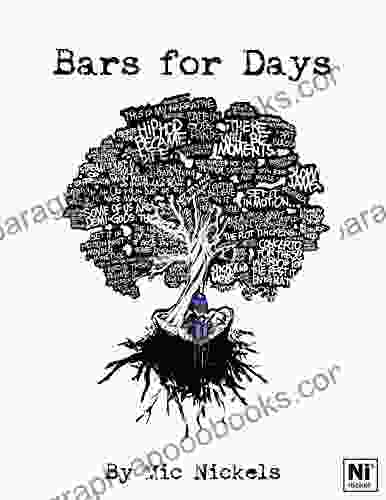
 Ignacio Hayes
Ignacio Hayes"Bars for Days": Unlocking the Lyrical Brilliance of Mic...
A Journey into...

 Edmund Hayes
Edmund HayesNew Life, No Instructions: A Memoir of Unforeseen...
A Riveting Tale of Loss,...

 W.B. Yeats
W.B. YeatsUnveiling the Intricate Cultural Fabric of Mainland China...
In the tapestry of human history,...

 Anthony Burgess
Anthony BurgessGestalt Counselling In Nutshell: A Comprehensive Guide...
Gestalt counselling is a therapeutic...
4 out of 5
| Language | : | English |
| File size | : | 338 KB |
| Text-to-Speech | : | Enabled |
| Enhanced typesetting | : | Enabled |
| Print length | : | 19 pages |
| Lending | : | Enabled |
| Screen Reader | : | Supported |


